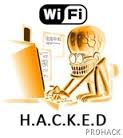Public Wi-Fi networks are popular in coffee shops, restaurants, hotels and just about everywhere else that people might need to get an Internet connection to do business or just pass the time. Unfortunately, public Wi-Fi networks come with significant risks. Let’s take a look at those risks, but first let’s talk about how you can prevent yourself from having to worry about them at all.
How the Threat Manifests
A public Wi-Fi network is one that you can connect to by simply turning on your Wi-Fi enabled device and connecting. There is no password or user name required.
Setting up a public Wi-Fi network requires nothing more than having a wireless enabled router and an Internet connection. People can literally set these up anywhere, and they oftentimes set them up near legitimate networks, hoping to fool people into connecting to their open router.
The best policy is not to connect to public Wi-Fi networks at all. If you do need to use these services, however, you may want to consider getting a tool called a VPN, which encrypts your connection. If you have a VPN running, even if somebody is spying on your traffic – which is shockingly easy to do – they can’t decipher any of it, as they are not a part of the private network you are hooked up to and encryption prevents them from being able to intercept your information. This doesn’t make it safe to use malicious networks, but it can prevent attacks on legitimate networks that are being prowled by a hacker.
Ideally, however, and to minimize risk, you should only connect to networks that you know are safe and that require a username and password.
Here are some good reasons why you shouldn’t use a public Wi-Fi, unless you have some sort of protection, such as a VPN.
Attacks
Once your computer becomes part of the public Wi-Fi network, anybody with the right tools and know-how can access the information on your computer over that network. If they really know what they’re doing – and many of them do – this means being able to access not only the files on your computer, but the information you are sending across the network connection. Remember that many programs automatically log you in. Your email, instant messengers, even sites with sensitive banking information, may log you in automatically, which means your credentials are sent across the unsecured network. Once that happens, the hacker has your usernames and passwords to whichever sites you logged into.

They can use this information for nefarious purposes beyond the obvious, such as using your credit card number. For example, they might use your username and password for your email account to set up your email as a spam address. They might also launch attacks on other websites using your computer, which could lead back to you and cause quite a lot of hassle for you.
Public Wi-Fi networks are always dangerous. If you do need to use them, make sure you familiarize yourself with the types of tools you can use to protect yourself and make sure you’re very careful about what networks you join. A common tactic involves setting up a malicious network within range of a legitimate public Wi-Fi network and giving it a very similar name, causing people to connect without knowing it. Additionally, turn off the Wi-Fi connection on your smart phone, tablet and laptop when you aren’t using a Wi-Fi network. If it automatically joins a malicious network, you could be vulnerable and not even know you’re connected.
